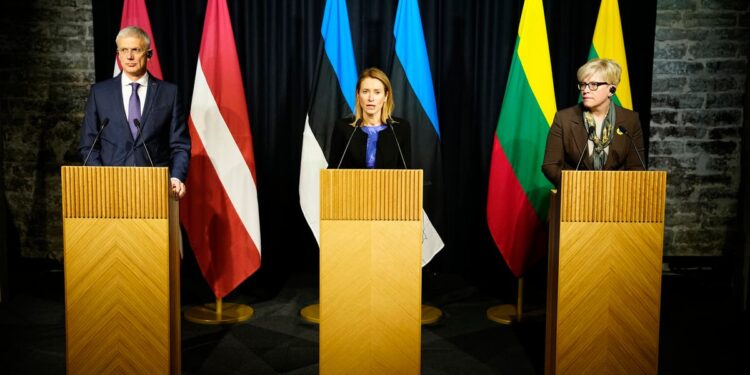“We will disconnect and dismantle the last physical connections with Russian and Belarusian grids,” Litgrid CEO Rokas Masiulis said, calling the move an “ambitious energy independence project.”
The three former Soviet republics do not currently buy electricity from Russia, but remain physically connected to a grid in which the electricity frequency is controlled by Moscow under the 2001 BRELL agreement. The Baltic systems plan to synchronize with the continental European system on Feb. 9, 2025. Both systems use 50 Hz alternating current.
“Synchronization with Continental Europe Synchronous Area will allow for independent, stable and reliable frequency control of the Baltic states electricity grids and will increase energy security in the region,” Estonia’s grid operator Elering said.
Estonia, Latvia, Lithuania and Poland agreed with the European Union’s executive commission in 2019 to coordinate on connecting the Baltic nations to the EU’s power network by the end of 2025. However, Russia’s war in Ukraine led the Baltic countries to speed up the project.
The February 2025 date for the transition was a compromise. Lithuania wanted an energy exit as early as this year, citing Moscow’s unreliability and its aggression in Ukraine. Estonia resisted a quicker cutoff, saying it might experience blackouts if the transition happened too soon.
“The Baltic electricity market has adapted and operates without electricity import from Russia,” said chairman Rolands Irklis from Latvia’s AST.
“Since Russia’s invasion of Ukraine, Latvia has completely stopped electricity import and export from Russia and Belarus, and synchronization with continental Europe is the last step to achieve country’s independence in the field of electricity supply,” Irklis said.
Source link : https://www.independent.co.uk/news/world/europe/russia-belarus-power-grid-latvia-lithuania-b2581181.html
Author :
Publish date : 2024-07-17 12:49:18
Copyright for syndicated content belongs to the linked Source.


